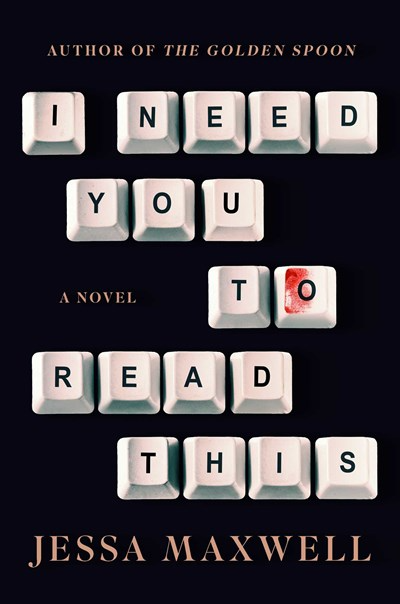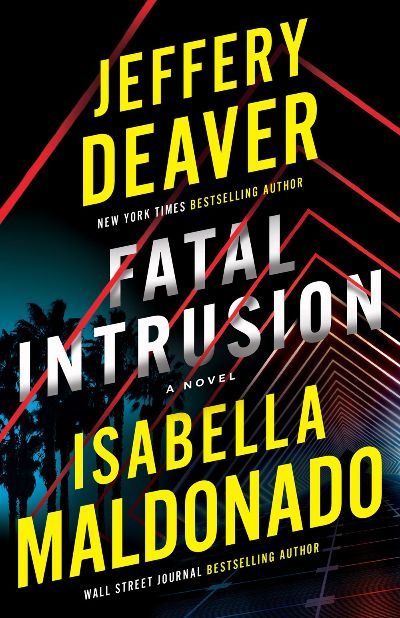Like a lot of New Yorkers before her, Alex Marks came to the city to escape her past and forge a new identity. She finds work as a copy editor, but remains withdrawn, no dating!, with her only friends the staff at her neighborhood coffee shop. But when her hero, Francis Keen, the famous editor of the advice column, “Dear Constance,” doesn’t just die, but is murdered, Alex finds herself applying for her job—surprising herself at her ambition. Alex adored Francis, and even though they never met, she was beholden to Francis’ advice over the years. Miraculously, the paper’s editor in chief recognizes the kinship they share and gives Alex the job. But then she starts to receive sinister, vaguely threatening letters that motivate her to find Francis’s murderer. Fast, frightening, and ultimately fulfilling, the narrative takes a full 180 degree flip. Anticipate several brutal episodes of domestic violence.
Thrillers
Davey Burnet’s life is boring, tough drudgery, made no easier by his shame and frustration over having caused a lot of his own problems. He works at a Glasgow car wash where the work is both boring and freezing and the annoying customers bested only the even more draining pothead boss. But Davey wishes for the boredom back when an impulse decision brings a world of trouble down on him and the business. After nouveau-criminal-riche Paulo McGuinn takes to bringing his ostentatious vehicles to be cleaned and Davey “borrows” one of them to make it to a custody hearing for the daughter he desperately wants to see, the car is wrecked and suddenly Paulo is the de facto owner of the car wash and of Davey’s grim future. Paolo’s just-one-of-the-lads bonhomie is a wafer-thin veneer over viciousness; not taken in by it is DI Alison McCoist, whose pecking away at the car wash’s goings on are Davey’s only hope. While this fast-moving tale is dark and has moments of real terror, it’s also grimly hilarious, especially in McSorley’s skewering of Paolo’s inflated self regard. The dialog takes some getting used to, with the character’s thicker than thick Glasgow accents faithfully reproduced, but once readers acclimatize they’re in for a rollicking, satisfying read.
First published in 1949 and now elegantly translated into English for the first time, this award-winning atmospheric puzzler by a celebrated author from Japan’s golden age of detective fiction is both an intricate locked-room mystery and a metafictional take on how to write such a crime novel. In the summer of 1946 at a bathing resort, Akimitsu Takagi, a devotee of mystery fiction and an aspiring amateur sleuth, runs into Koichi Yanagi, an old school friend who has just returned to Japan after serving in Burma. Koichi now works for the respected Chizui family, whose members appear to be as cursed as Edgar Allen Poe’s Usher siblings. Ten years earlier, the patriarch, Professor Chizui, died of an apparent heart attack, although Koichi suspects foul play; his wife was institutionalized in an asylum; and recently their daughter also lost her sanity. One night, an eerie figure wearing a demonic hannya Noh mask is spotted in the upstairs window of the Chizui mansion; Taijiro, the professor’s brother, asks Akimitsu to investigate. By the time the sleuth arrives on the scene, Taijiro has been found dead in an armchair in his locked bedroom, with the mask on the floor beside him and the scent of jasmine lingering in the air. When Akimitsu learns that someone has ordered three coffins, he fears that the worst is yet to come. The author cleverly structures his plot like a Russian nesting doll, with one puzzle embedded within another puzzle inside another puzzle, until it is resolved in a surprising and satisfying conclusion. Agatha Christie and S.S. Van Dine fans will enjoy this twisty tale.
In the first book in the series, Kalmann, we were introduced to our hero, a young man who’s neurodivergent—although he uses many terms to describe himself—and who works as the self-appointed sheriff of Raufarhöfn, a fishing village in northern Iceland. His world is contained—he lives with his mother, his best friend he sees only online—but his life is still fraught with dangers, from fishing on the Greenland Sea to encounters with polar bears. Kalmann remains well regarded in his village, and it is his sense of humor that often helps him survive. But in Kalmann and the Sleeping Mountain, we are stunned to find Kalmann in West Virginia, visiting his Dad, whom he has never met before, and getting swept up, along with his Dad and his MAGA buddies, in the January 6, 2021 riots in the Capitol Building. Incredible! While he is soon put on a plane back to Iceland by a kindly FBI agent, Kalmann’s world is changing. His beloved grandfather has recently died, and, Kalmann learns, he may well have been a Russian spy. Could he have been murdered in his nursing home? Another possible murder in the village, and a risky trip to an abandoned U.S. radar station with an aunt, forces Kalmann to rethink his family and village and his role in both. Both heart-rendering and hilarious, “there is no need to worry” as Kalmann famously declares. “Kalmann is in charge.”
This novel of small-town heartbreak, grittily emotional in a way that’s reminiscent of Dennis Lehane’s Mystic River, introduces the lovably flawed Grady family: Roman, his partner, Ashley; their son, Mason; Roman’s mom, Tara; and her partner, John. They all barely hold it together financially and every other way in their part-time Airbnb in upstate New York. The house needs extensive repairs, but who has the money? Instead they’re muddling along, with Tara mainly raising Mason and his parents resenting her takeover. Then Roman finds Ashley dead on the riverbank behind her drug-addict friend’s house. As word gets out that Ashley had a bag of pills in her pocket, everyone in town assumes it was an overdose. But Roman wants real answers, and his digging creates a realistic, relatable saga of poverty mixed with love and bad choices. All the characters here are memorable, but four-year-old Mason and his bottomless, bewildered grief are particularly well drawn. A family and a story to remember.
I love the kind of us-and-them stories set in places like the Hamptons, and the latest by DeCarolis (The Guilty Husband, Deadly Little Lies) is packed with twists. Alex and Maddie Walker are sisters who look so alike and are so close in age that people think they’re twins. Their mother referred to them that way, a glimpse of love amid her boozy, selfish ways. Now Mom’s long gone, and the sisters, who are now in their twenties, are distant after an argument that followed her funeral. But when Alex doesn’t hear from Maddie, who has been in the Hamptons for the summer, she heads to that tony town to get to the bottom of things. What she finds is very strange—Maddie had been living at one of the swankiest houses in the area, Blackwell Manor. Alex stays with the Blackwells herself, keeping a safe distance from their rich but miserable lives—until things take a turn when another young woman goes missing. As Alex becomes a thorn in the police’s side, she uncovers secrets about the present and the distant past. Dark sexual themes feature amid the absorbing suburban suspense that’s told from multiple, tantalizing viewpoints.
Hands down the creepiest book we’ve reviewed this year, if not in several years. Charlie and Eve are a gay couple who make their living buying and flipping old houses. Their current project is in the rural Pacific Northwest, far from their roots on the East Coast. A family drops by one afternoon
—Eve is all alone while Charlie is running errands—and the father says he grew up in the house and could he show the kids around? It takes a bit of cajoling, but Eve eventually gives in—huge mistake—because once they’re in the house, the weird and the worrisome begin to present themselves. The youngest daughter disappears. The basement is home to supernatural presences. Objects vanish. Charlie returns, although she doesn’t offer the support Eve needs. As the day goes on, it becomes clear that the family can’t leave—a winter storm has descended on them—but it gradually becomes even clearer that they have no intention of leaving. Crazily suspenseful, but a tad more horror than mystery, the story moves at a fast clip as the reader slips from one reality to another in this accomplished debut. To be released as a Netflix original film starring Blake Lively.
Spotting a sleek Mercedes SL sports car parked in a sloping field below a house, its engine still running and the driver’s door left open, Denton Wymes, on his way home from fishing, pauses to investigate. It’s a moment that the isolated loner will soon regret as he becomes caught up in a missing-person case that will turn his life upside down. Before Wymes can retreat, a man named Armitage approaches, claiming his wife has thrown herself into the sea. Together they walk up to the house to telephone for help. Armitage’s behavior is odd (“he seemed more excited than distressed’) and Wymes senses that the tenant answering the door, Charles Rudduck, recognizes Armitage. Called in from Dublin to investigate is Detective Inspector St. John (pronounced “Sinjun”) Strafford, who is also juggling a complicated personal life (an estranged wife and a lover who is the daughter of his colleague, state pathologist Quirke). In late 1950s Ireland, divorce is illegal, and Anglo-Irish social tensions remain strong. Banville deftly captures the prejudices and suspicions between the groups. “You’re not a Paddy, then” says Armitage to Wymes, who stiffly corrects him that he is Irish, but not “bog Irish.” In a mostly Catholic police force, Strafford stands out as the rare Protestant. His investigation gradually uncovers secrets that go back years and into previous series installments, but enough back information easily guides new readers through the complex plot. Banville ends his fourth Strafford/Quirke crime novel (after The Lock-Up) on a haunting, ambiguous note. With its complicated, not always likable protagonists, this beautifully written book will appeal to fans of literary mysteries in the vein of Kate Atkinson’s and Tana French’s works.
Two of my favorite writers have teamed up, and the pairing exceeds expectations. A nature photographer is killed, and a young woman named Selina narrowly avoids the same fate. Selina’s older sister, Carmen Sanchez, works for Homeland Security and wants answers. The attacker is methodical, ruthless, and seems to know every trick not to be seen or caught, though Selina did see he had a tattoo of a black widow spider on his wrist. With no motive and a heavily encrypted cell phone recovered at a crime scene, Carmen seeks the assistance of Professor Jake Heron, a teacher and security expert. Though they share a troubled past and probably should not be assisting each other, Carmen feels she has no alternative. Jake’s curiosity draws him directly into the case, and the reluctant duo is slowly drawn into the perpetrator’s web. This book reads like a great episode of Monk or Elementary, with law enforcement working closely with an expert consultant. Carmen and Jake have great chemistry, and the story reads like the best of Maldonado’s crime novels and Deaver’s thrillers. Fatal Intrusion is a must-read, and everyone will be dying for the next book.
Harry Hunt, former right hand to Robert Hooke, from whom he’s now estranged, is back in his third 17th-century London mystery, after The Bloodless Boy and The Poison Machine. He’s still immersed in a life of the mind and courting Hooke’’s daughter, Grace. Otherwise, though, his circumstances have changed markedly, with new prosperity sitting increasingly uncomfortably on him as events, and a surprising relationship, remind him where his roots lie. He’s also reminded from whence he came when the King takes him down a peg during an investigation (“Your use to me outweighs your impertinence”). The case starts when Harry attends the planned dissection of the corpse of a suicide from Bethlehem Hospital, the notorious insitution nicknamed Bedlam, which is halted quickly when Harry sees that the cadaver is that of no Bedlam pauper but his neighbor. How her body got to a hospital where she wasn’t a patient is a puzzle. Adding to the horror, another woman shortly goes missing and Harry is charged. He’s soon on the run, offering Lloyd the opportunity to show what London in 1681 was like outside its gilded halls and to keep readers on edge as the law and other malevolent forces close in. With its rich language, gory details of an era that was an attack on the senses, tidbits on Popish vs. Protestant politics, and shocking facts about early medical training, this is another immersive winner from Lloyd.










